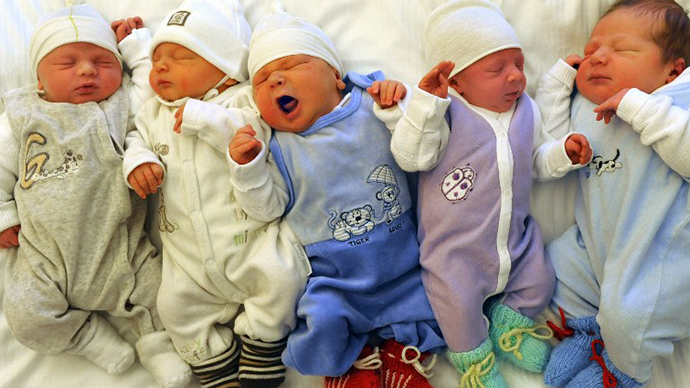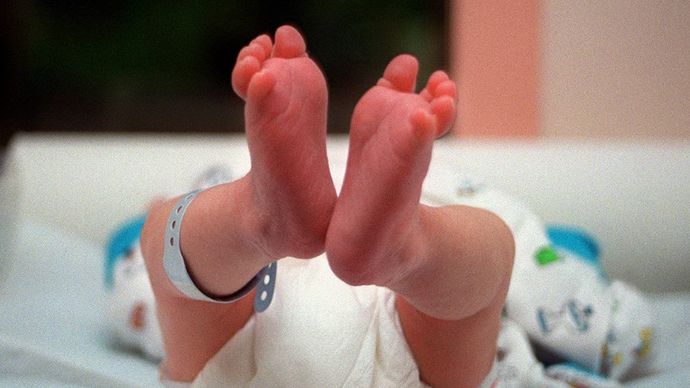Brit baby boom: UK is EU champ in birth rates, population growth

The UK has had its largest number of births since 1972. The growth of 420,000 in just one year is equivalent to the population of Bristol, and is more than the population increases in Germany, Sweden, Belgium and Holland combined.
The population was estimated to be 63.7 million in mid-2012, up from the estimated 63.3 million in mid-2011. There were 813,200 births occurring in the year to 30 June 2012 in the UK, (254,400 more births than deaths), according to the Office for National Statistics.
A significant population increase was also due to 165,600 more international migrants arriving than emigrants leaving, according to the ONS. Over a quarter of all newborns have mothers who were born abroad, compared to 17.7 percent in 2002.
"The ONS figures clearly show that immigration is the main driver of population growth in the UK,” Deputy Chairman of Migration Watch UK said.
“These figures have a significant bearing on future needs like school places and housing as well as services. This is why the government has to stay the course in its efforts to bring immigration under control," Alp Mehmet stated.
The UK’s population growth is nearly a third higher than the rise of its closest rival, France. The figures prove that the French population rose by over 319,000 during the same period.
While according to France’s national demographic statistics agency INED, French women on average have two children, the UK boasts families with three or more kids, a higher percentage than most EU states.

Even though the population of the UK currently ranks third compared to other EU member states (the UK has approximately 17 million fewer people than Germany and 2 million fewer than France), by 2050, Eurostat expects the UK population to rise to 76.4 million, France's to increase to 73.2 million and Germany's to fall to 70.8 million.
Statistics gathered by Eurostat show that Germany had a 166,000 increase in population (compared to 14,700 in Czech Republic). The numbers in Belgium went up by 91,000; in Sweden by 70,000 and in Holland by nearly 62,000. All of the above mentioned counties have been lucrative destinations for immigration.
The population of the UK has increased by about 4.6 million (7.8 percent) in the 11 years since 2001, with London and the South of England having seen the greatest increases, the ONS said.
Meanwhile, a campaign aimed at encouraging illegal immigrants to leave the UK voluntarily has been launched in six London boroughs since late July. The text on mobile billboard vans spotted in the capital says: "In the UK illegally? Go home or face arrest."
David Cameron said last month that immigration was a “constant drain” on public services in Britain. His comments came after the Office for Budget Responsibility suggested that the country needs millions of immigrants over the next five decades because of its ageing population.
The British Prime Minister, who said that in the last decade the UK has had “an immigration policy that’s completely lax” stated that he is determined to reduce the levels of immigration into Britain to "tens of thousands."














